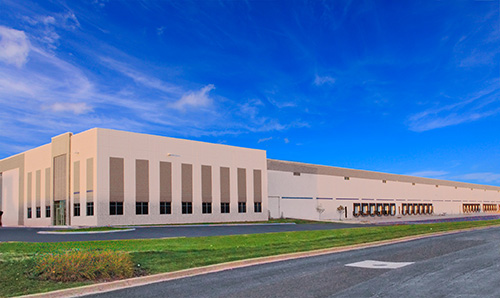
Jeff Coyne
Director, GRS | Corteq
(510) 962-9534
[email protected]
The commercial real estate (CRE) industrial sector has a lot going for it nowadays.
Amazon’s continuous growth is a big driver, along with other e-commerce retailers, fueled by an exponential increase in Internet sales and the need for warehousing.
So how long can it last?
A recent report on the industrial sector of commercial real estate by Real Capital Markets and SIOR (Society of Industrial and Office Realtors) for the coming year, paints a continued picture of success in the near term.
The recently released “Industrial Sentiment Report” says that pricing in the sector continued to increase. E-commerce tenants will remain to be a leasing driver and there is a large pool of investors interested in the asset class. An overall five percent growth rate in pricing is also forecast.
Dallas-based CBRE Vice Chairman Jack Fraker said that this year may not eclipse 2015, which was a record 12 months of industrial activity, but it should surpass 2007, which was the second-best year on record. He noted: “We are seeing significant volumes of activity throughout the sales and marketing process because the fundamentals—absorption, vacancy and rent growth—are so compelling. I don’t see anything slowing down in 2018—not deal flow, fundamentals or the economics.”
Under 10 percent of the brokers surveyed in the report said that deal flow would decrease in the coming 12 to 18 months. 42.5 percent of the respondents expect it to be the same, and almost 48 percent expect a jump in activity. And, as with other commercial real estate property types, we are seeing a move toward secondary markets to get strong returns. Areas like California’s Inland Empire, Northern New Jersey, Detroit, and others are faced with tight supply.
“The primary challenge is there isn’t nearly enough supply on the market to meet demand. With inventory so scarce, simply put, you will see more investors competing for fewer deals,” pointed out Robert Thornburgh, an executive vice president in Kidder Matthews’ Long Beach, Calif., office. He also mentioned that cap rates will likely see continued compression in popular markets, though brokers pooled by the report are mixed on how low the spreads will end up in the coming year.
The growth of e-commerce, and its impact on the industrial commercial real estate sector is well documented – but there are other factors propelling the sector to new heights.
A bounce-back in manufacturing, led by the automotive industry, is a large contributor. Legalized marijuana, in certain states and markets, is another. Development is concentrating on potential tenants’ desire for lower overall transportation costs, according to Scott McKibben, chief investment officer and managing principal at Brennan Investment Group, in Rosemont, Ill.
Not all news is great, however. The one major concern for the industrial sector is the current political climate in the United States. Uncertainty about our current and trade agreements tempers speculation about the future flow of products to consumers. Local and geo-political concerns generally rank high for investors in the asset class.
In the short term, there is little to slow industrial’s momentum.
About GRS Group
GRS Group is a leading provider of commercial real estate (“CRE”) services worldwide. With offices across the United States, Europe, and affiliates around the globe, GRS Group provides local market knowledge with a global perspective for institutional real estate investors, occupiers and lenders worldwide. The GRS Group team has evaluated and advised on over $1 trillion in CRE transactions.
Through the company’s proprietary management process, Global Services Connection, GRS Group delivers an integrated suite of services including Financial Advisory, Transaction Management, Assessment and Title Insurance. We provide a single point of contact, capable of leveraging the GRS Group portfolio of companies and delivering customized solutions to assist our clients in achieving their investment goals.

